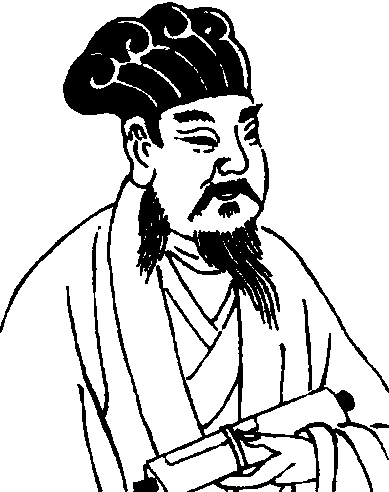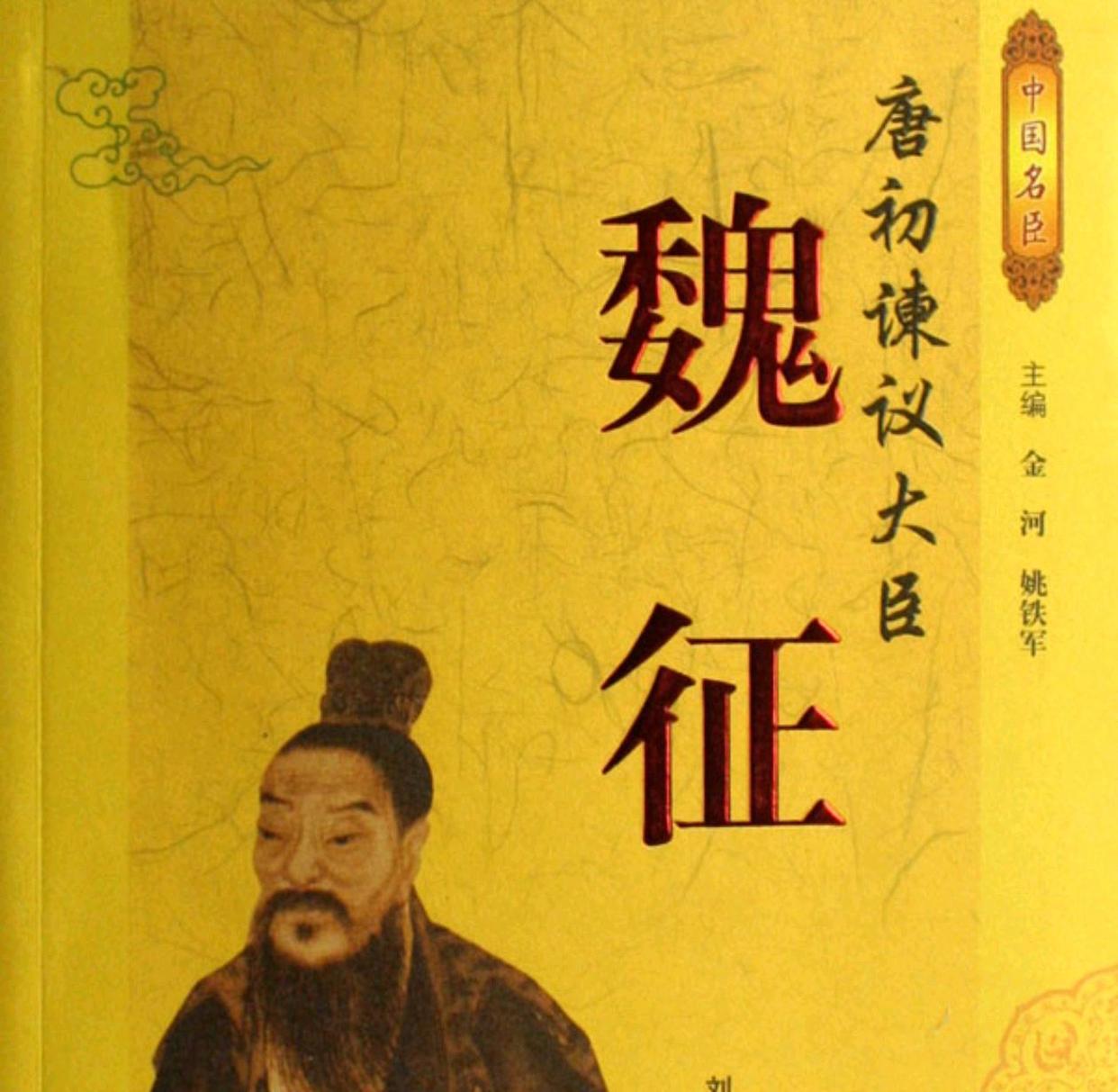Today, the History Encyclopedia editor brings you the throne of Li Shimin, hoping to be helpful to you. Li Shimin’s throne was fiercely contested by Li Chengqian and Li Tai, why did Li Zhi ultimately win the throne?

In 648 AD, when Li Shimin was critically ill, he issued an imperial decree to demote his trusted minister Xu Maogong to Diezhou (present-day Qinghai region). Emperor Taizong of Tang said to Li Zhi, “If Xu Maogong delays or fails to depart, then kill him; if he is ordered to go, then you will definitely restore him to his original position in the future.” Why did Li Shimin do this?
In Li Shimin’s instructions to Li Zhi, he said that Xu Maogong was a talented person because Li Zhi had no favor towards him. After Li Shimin’s death, he may not be willing to be used by Li Zhi, which may trigger rebellion events like Hou Junji and Du Zhenglun. So Li Shimin demoted Xu Maogong to the Far Beijing area. After Li Zhi inherited the throne, he ordered Xu Maogong to regain his original position! In this way, it seems that Li Shimin has chilled the hearts of his trusted ministers. Li Zhi’s reinstatement of Xu Maogong to his original position can also be considered a favor from the emperor!
When a person is about to die, their words are also good. Due to years of warfare and hereditary diseases in his family, Li Shimin fell seriously ill in his later years. In order to ensure the stability of Li Zhi’s throne, it can be said that he went to great lengths. In fact, he suffered the same pain as his father Li Yuan. Back then, he initiated the Xuanwu Gate Incident, and in his later years, he was also repeatedly ‘taught’ by his sons.

After retiring from the court, Li Shimin left Changsun Wuji, Chu Suiliang, Fang Xuanling and others behind. Emperor Taizong complained for a moment, “My three sons (Prince Qi You, Crown Prince Li Chengqian, and Prince Wei Li Tai) are all so rebellious. I don’t know who will be left with the position of heir?” After speaking, Li Shimin drew his sword and intended to commit suicide. The ministers hurriedly stepped forward to stop him.
Li Zhi’s throne can be said to be lying down and sitting on it. Crown Prince Li Chengqian was deeply loved by Li Shimin, but as the future heir of the Tang Empire, he acted in the same way as others, disobeying the code of conduct and engaging in homosexuality with a female looking actress. He performed witchcraft and witchcraft in the Eastern Palace, claiming that if anyone dared to advise like Wei Zheng did when he became emperor, he would be killed. In the end, his conspiracy to rebel was discovered, and Li Shimin exiled him to a remote area.
On the contrary, why was Li Tai not registered as the crown prince?
Li Tai is the “most outstanding” among Li Shimin’s many sons, and Li Shimin is also extremely favored by him. Including allowing Li Tai to establish a literary museum in the Wei Wang Mansion and strongly supporting Li Tai’s compilation of the “Kuo Di Zhi”, Li Shimin was very fond of Li Tai, who seemed simple and bulky. But obviously, literary literacy and book compilation do not necessarily mean they are equally practical in governing the country and ensuring national security. Li Shimin’s love and excessive praise for the King of Wei made his heart flutter and his ambitions even more inflated!
Secondly, Li Shimin suppressed the Crown Prince while also allowing Li Tai to live in the Wude Hall. How could Li Chengqian accept this? The style and character of the Crown Prince are problematic, but Li Shimin’s approach to educating his son is also problematic. Various factors increased the motivation for the Crown Prince to rebel.
In addition, once during Li Shimin’s illness, Li Tai came to serve. Li Shimin asked, “If you (Li Tai) are appointed as the crown prince and inherit the throne in the future, how will you choose when your son competes for power and the throne?” Li Tai’s answer was, “I will kill my own son and pass the throne to my younger brother Li Zhi.” Li Tai’s answer made Emperor Taizong’s back shiver. Tiger poison does not feed on offspring. How can such a ruthless son be a good emperor?
Li Shimin pondered for a while, Li Chengqian was exiled, Li Taili was tempted, and in the end, the position of crown prince unexpectedly fell to Li Zhi. However, Li Zhisheng was cowardly in nature and lacked great talent. But what Li Shimin saw was his loyalty, kindness, and extreme filial piety. When Li Shimin was critically ill, Li Zhi moved directly to the Taiji Palace to serve him, never leaving, which made Li Shimin have a good impression of his son!
Until the last moment of Li Shimin’s life, he still cared about clearing the stumbling blocks on Li Zhi’s path to succession. For this reason, there was a great deal of terror throughout the court and the public.
Li Zhi’s filial piety is true, but his cowardice is also true. From Li Zhi’s ability to succeed to the throne, it can be seen that he has never been the one who stands out, but quietly stays behind the visible and hidden arrows. It wasn’t until Li Chengqian and Li Tai were in a state of chaos and chaos that Li Zhi finally realized his benefits as a fisherman.
The ancient Chinese saying goes, ‘Only those who do not argue can compete with them.’. Li Zhi’s non contention may be the biggest leverage and struggle.
When others are busy with their own affairs, remain calm and observe their changes. This is a form of self-protection and also a great wisdom. So, the emperor’s throne fell from the sky and landed on Li Zhi’s head. Or, it can be simply said that fools have their own happiness!
On the other hand, during Li Zhi’s reign, he did not achieve significant political accomplishments. Due to his cowardice, the balance of power repeatedly tilted towards the Empress Wu, causing chaos in the Li Tang dynasty.
Wu Zetian plunged a foot horizontally into the cracks of history and wrote her name in the river of history. There are mixed opinions about her. Zhongliang was captured, the harem was in chaos, and the descendants of the Li family were persecuted; But it also promoted the imperial examination and palace examination, pioneered the “official probation period”, and emphasized the use of children from humble backgrounds
History is a precious resource within reach, and any life or social dilemma can actually be answered on the pages of history. History is also a reference, as long as we are willing to look back and reflect.
Reading history makes people wise, transparent, enhances their perspective, broadens their horizons, and at the same time, increases confidence and enhances their personality. Wisdom is a good thing, having wisdom means having everything!
Without anything, one cannot lack confidence, especially cultural confidence. In the face of life challenges, current confusion, and career bottlenecks, it is advisable to draw energy and methods from successful historical figures.


